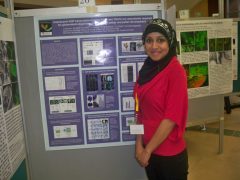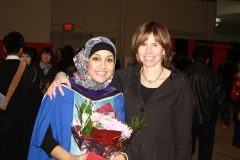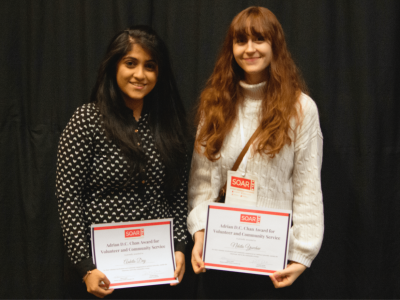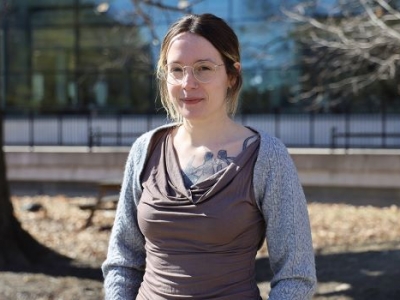 Horticultural and agricultural industries lose revenue every year due to premature petal shedding of cut flowers and pod shattering of crops such as soybean and canola. This leads to a loss of seeds. Researchers are working on ways to help prevent this by making petals remain attached to the flower post cutting, helping crop plants retain their seeds for longer which will make harvesting easier and more effective for farmers.
Horticultural and agricultural industries lose revenue every year due to premature petal shedding of cut flowers and pod shattering of crops such as soybean and canola. This leads to a loss of seeds. Researchers are working on ways to help prevent this by making petals remain attached to the flower post cutting, helping crop plants retain their seeds for longer which will make harvesting easier and more effective for farmers.
Dr. Madiha Khan has been working on molecular research that identifies the role of genes located at the boundaries of flowers where petals detach and fruits where the pod shatters, to learn more about how to regulate these processes.
She found her research and its results In Dr. Shelley Hepworth’s Carleton biology lab so exciting that she decided to stay on after her undergrad studies to pursue all of her graduate work and then as a Postdoctoral Research Fellow.
 Part of her decision to stay was because she could continue working with her supervisor. “Dr. Hepworth is the kind of mentor who truly cares about the personal and professional outcome of her students,” says Khan. “She is positive and supportive even when we are not too sure about our own capabilities and pushes us to be the best that we can be.”
Part of her decision to stay was because she could continue working with her supervisor. “Dr. Hepworth is the kind of mentor who truly cares about the personal and professional outcome of her students,” says Khan. “She is positive and supportive even when we are not too sure about our own capabilities and pushes us to be the best that we can be.”
Khan’s hard work has just been presented with a L’Oreal France-Canada Research Fund (FCRF) Award.
Dr. Hepworth recommended Khan for the award. “Madiha is an excellent scientist, a talented young researcher, and a great role model for young women in science, especially other newcomers to Canada. Her work ethic, dedication, professionalism, efficiency and friendship are outstanding.”
Winners of the award have been invited to take part in a fall mentorship program for young girls in grades 4 to 6.
Over the last six years, Khan has mentored several students. Some of the students, who came from India, Ethiopia, China, Zambia, etc., didn’t have much experience working in a laboratory setting soo she taught them experimental techniques and assisted them with their research projects in collaboration with Dr. Hepworth.
“If scientific concepts needed clarification, I would go through them step-by-step to make sure the students understood everything. I try to be a friend to these students because I know from experience how hard it can be to adjust to a new environment,” says Khan. “It has been a rewarding experience for me as well, learning about various cultures and backgrounds people come from and how they plan on making a difference back home with the education/experience they gain in Canada.”
Khan will use her $5,000 L’Oreal-FCRF Award to continue her research in Dr. Hepworth’s lab. The Hepworth lab, particularly Khan, has been collaborating with the Pautot Lab in France at the Institut Jean-Pierre Bourgin in Versailles.
After that, she hopes to start another PDF in Toronto while gaining further experience as a sessional lecturer at different universities.
Tuesday, August 26, 2014 in Awards, News
Share: Twitter, Facebook




